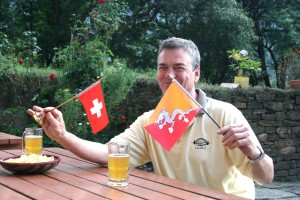Government waives off Sustainable Development Fee to promote east Bhutan
Sustainable Development Fee (SDF) waiver for tourists visiting the six eastern dzongkhags came into effect from November 16, 2017.
An official with Tourism Council of Bhutan (TCB) said the tour operators who have already operated groups in the six eastern dzongkhags from November 16 last year could contact TCB to process for refund of SDF. “Strict verification will be carried out as per the approved guideline.”
TCB issued a notification on February 15 saying that no SDF will be applicable for the tourists visiting Mongar, Samdrupjongkhar, Lhuentse, Trashiyangtse, Trashigang and Pemagatshel.
SDF is a fee of USD 65 levied per person per night halt. The amount is included in the minimum daily package rate (MDPR), which is the minimum amount that has to be paid per person per night halt.
With the exemption, the tourist visiting the six eastern dzongkhags will now have to pay only USD 135 during the lean season and USD 185 during the peak season. The exemption of royalty will be implemented for three years.
International leisure tourists staying overnight or longer in the eastern circuit are eligible for SDF wavier. The total amount to be waved off will be calculated based on the duration of stay in the eastern circuit.
Finance minister proposed the Tourism Levy Exemption Bill, which was introduced as a money bill to the Parliament on November 16. A Money Bill, if approved, will come into effect from the date it is introduced in the Assembly.
The official said the Guideline for Wavier of Sustainable Development Fee (SDF) in the Eastern Circuit will be revised from time to time.
MDPR for the eastern circuit covers a TCB certified accommodation facility (minimum three-star in case of hotels) and meals, a licensed Bhutanese tour guide for the entire duration of stay, internal land transport, and camping equipment and haulage for trekking tours. Additional charges have to be paid for availing services that are not covered under MDPR.
The guideline states that surcharges for small groups will be based on the existing provisions in the Tourism Rules and Regulations (TRR) 2017.
The official said TCB’s Quality Assurance Division would carry out monitoring and inspection from time to time with support from the dzongkhags, gewog authorities and other relevant agencies to ensure compliance with the guideline.
TCB certified hotels, home stays, campsites and providers of porter services will provide or facilitate access to documents or information required by TCB for monitoring and verification.
“The regional tourism office in Monger will also carry out inspection and monitoring from time to time once it is established,” the officials said.
Records with the immigration checkpoints about tourists entering and exiting eastern Bhutan will be used to facilitate monitoring and verification by the TCB.
If found not conducting tours as per the approved itinerary, in addition to fines as per the TRR 2017, tour operators will be liable for payment of SDF for the duration of stay.
The guideline also includes visa and payment application procedures.
Source Kuensel (Dechen Tshomo)


